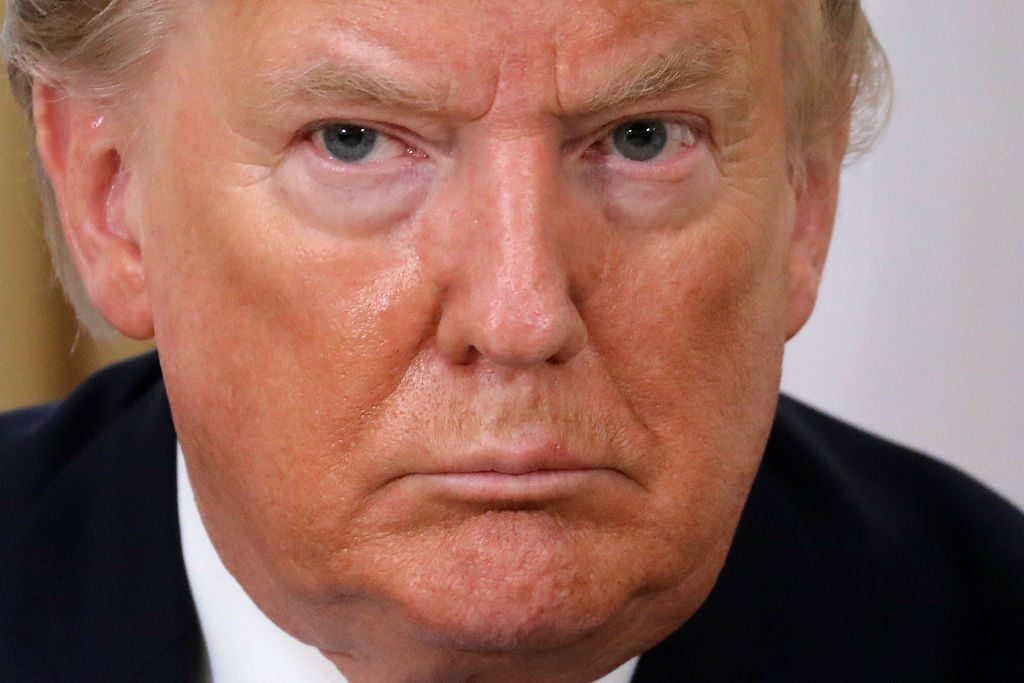GOP Influence Game Around Trump is Booming

Ahead of his departure to London, President Donald Trump declared that the ongoing House impeachment inquiry was a “hoax” designed to vaporize his legitimacy on the world stage. Apparently, House Speaker Nancy Pelosi didn’t check the schedule.
“The Democrats, the radical-left Democrats, the do-nothing Democrats decided when I’m going to NATO—this was set up a year ago—that when I’m going to NATO, that was the exact time,” Trump said. “This is one of the most important journeys that we make as president.” It was a curious line of argument from a politician who has repeatedly called in question the raison d’etre of the organization he was traveling to confer with.
But the statement belies the reality: President Trump has no such legitimacy crisis, not any more than he’s ever had anyway. Like “Rex,” his former secretary of state, Donald Trump is here. And as his vanquished foe Hillary Clinton conceded in 2016: “Donald Trump is going to be our president.” And, indeed, he is.
Trump’s approval rating stands where it has traditionally stood—in the low 40s—despite the various contortions of his harrowing first term in office. Trump, heading into his fourth year as president, has become a political switchblade—just when he looks as if his standing contracts, he manages to vault violently and successfully forward yet again. His re-election prospects are a challenge, but hardly an insurmountable one.
Trump did the impossible once, what then-House Speaker Paul Ryan described in 2016 as the most impressive political feat of his lifetime. And absent new evidence, Pelosi’s impeachment looks more nuisance than killing stroke—and a potentially, ultimately counterproductive gambit by his domestic foes.
A senior administration official explained the rationale for why the White House is not complying with the impeachment inquiry: What’s the point? Such a concession “shifts the burden,” this official said on Monday, on proceedings Americans are increasingly tuning out.
Players in Tehran, in Berlin, in Beijing, may still be waiting this president out, but there are elements that are clearly not: panicky, establishment Democrats that are fielding wildcard, late entries into the presidential race, as well as the rowdy gang of inside baseball players that have made hay in the Trump years.
One needed to have only tune into the proceedings last month at the Republican Winter Palace, Trump’s compound at Mar-A-Lago, Florida, to see a show of tepid confidence—but confidence, nonetheless—about the coming year. The Center for Security Policy, the ideas shop of archconservative knife-fighter and hawk Frank Gaffney and pugnacious former National Security Council chief of staff Fred Fleitz, put on a lavish fundraiser in essentially full public view last week.
The propriety of the affair at a resort owned by the president’s family was maligned by the mainstream press, most notably Gaffney’s chief tormenter, The Washington Post. But credit where credit is due: it’s not like Fleitz and Gaffney tried to hide their angle. CSP put the whole thing on YouTube. Private audiences that Gaffney and his set, including Virginia Thomas, the conservative activist and wife of the Supreme Court justice, have enjoyed with Trump, are a matter of public record.
Also on-hand at Mar-A-Lago: Andy Biggs, chairman of the House Freedom Caucus, Trump’s rump in Congress. Biggs has been considered an ally of foreign policy restraint, but his presence at a CSP gathering is emblematic of the continued fight in the Trump era, seen almost nightly on the increasingly contradictory Fox News, over what “realism” or “principled realism” really means.
Rounding out the speakers’ list was Christopher Ruddy, Trump pal, Newsmax CEO and all-around impresario of the center-right circuit. Gaffney and company may be toxic in a Democratic Washington, but they’re right at home as long the Grand Old Party controls the Oval. Ruddy himself, I’m told, is on a hiring spree, looking to beef up his Newsmax TV ahead of the election—the last conservative challenge to Fox’s primacy under Lachlan Murdoch, seen as more moderate than his legendary father.
Ruddy has also purchased the new radio show, the impeachment “War Room,” of former White House chief strategist Steve Bannon, former Breitbart editor and Nigel Farage aide Raheem Kassam, and former chief Trump spokesman Jason Miller. Bannon remains central to all of this, spearheading, along with the political architecture of CSP, the resurrection of the Committee on the Present Danger, now an anti-China watchdog that seeks to quietly pressure the president not to cave to Xi Jinping ahead of the next election. The group is helmed by Brian Kennedy, former president of the Claremont Institute, dubbed by The New York Review of Books as “Trump’s Brains” and a recent White House recipient of the National Humanities Medal.
Finally, perhaps no outside group has been more effective in the Trump years than the Foundation for the Defense of Democracies, a ruthless, some might say unscrupulous, foe of the Iranian regime and power player in Washington. FDD recently crossed a rubicon other organizations in the capital assiduously avoid: they registered to lobby, to what end remains not fully clear.
Come next autumn, the music may, finally, stop on the Trump show. But Washington is teeming with savvy operators that are quietly betting otherwise.
Curt Mills is senior writer for The American Conservative.